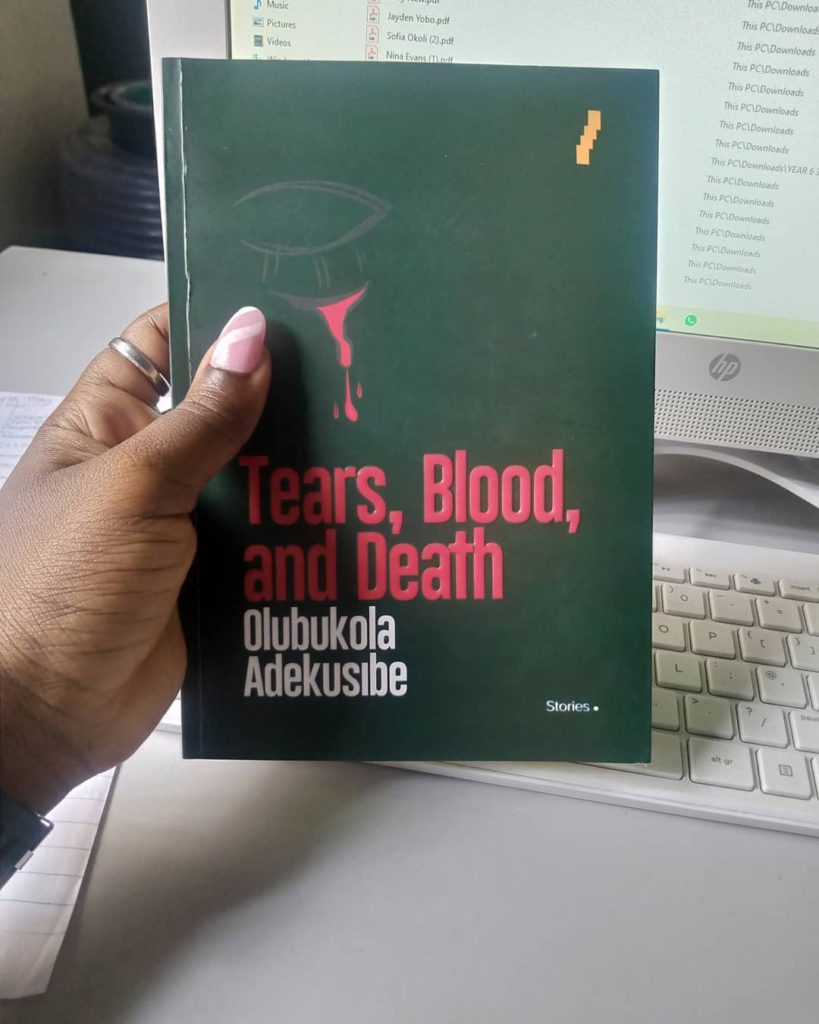
Olubukola Adekusibe’s Book, Tears, Blood and Death is a collection of short stories that delve into the dynamics of family life in Nigeria. She explores the different challenges families might face based on their socio-economic standing, and their different approaches to solving them.
In ‘The Last Prayer’, she explores the dynamics of a broken home from the POV of a child who suffers from abuse as his father lashes out in anger. This story serves as quite the appetizer as it opens our eyes to a reality that we might not otherwise know existed if we do not look beyond the surface. In that story, we also see the result of fear in victims of abuse, the author subtly chastises us as neighbors that put too much mind to minding out business as things deteriorate around us.
In the second story, we follow a story of poverty, helplessness, greed, child abuse, and youthful exuberance. The story of Mojirayo’s family is unfortunately a fairly common one in a country where majority of the population lives below minimum wage.
Coupled with the unfortunate Nigerian tendency to be half-educated, we see how deep poverty can seep into the daily fabric of a family and colour their choices.The author also explores the concept of girl-child marriages, and gives us quite another angle from which we can judge the consequences of this concept.
And as these stories often go, it ends in tragedy and leaves us to answer some interesting questions. This was undoubtedly my favorite story in the book.
I think that ‘A Woman’s Dream‘ is the author’s attempt to delve into the realm of fantasy as it is a story that combines a number of improbabilities to make itself whole.
It wasn’t a comedy, but it made me laugh, as it was like having a bite of something refreshing in between a 5-course meal to cleanse our palate from all the seriousness and severity of the previous stories.
Tears, Blood and Sweat, the title story of this book took me back in time to growing up in the 90’s and early 2000’s, where armed robbery was rampant and children became orphans from one day to the next.
It took me back to the times when we were robbed when I was a child, and reminded me of how much different the aftermath of those robberies could have been.
As the boy that had now become a man got his revenge, I felt a frisson of satisfaction. But the realist in me knows that this is rarely the case. Till now, experiences like this have taught me to be wary of sharing my successes as not everyone wants the best for you.
Final Thoughts:
All in all, this book was a good study in human character and family dynamics that you can pick up and finish in an hour (like I did). My only critique would be that Mojirayo was underage in her story, and I would really like to know how that story ends.
Xoxo,
Meenah
